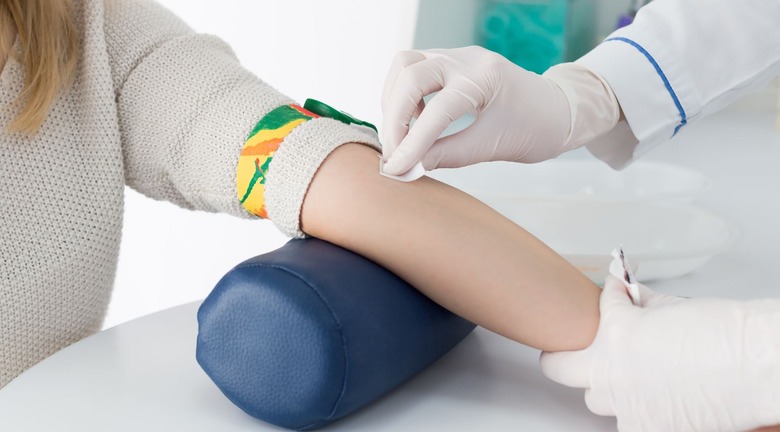Here's Why It's Important To Fast Before A Blood Test
Before certain types of blood tests, doctors tell patients to fast — to avoid eating or drinking anything for 8 to 12 hours before the test. You also shouldn't do anything that requires too much exertion, smoke, or even chew gum. It's okay to take prescription medication, but not over-the-counter stuff. But if you're starving and desperate for a caffeine fix, isn't it okay to just have a little nosh and a couple sips of coffee?
19 Foods and Drinks That Are Putting Your Blood Pressure Through the Roof
Nope. When the doctor says to fast, they mean it. Here's why.
The types of blood tests you need to fast for are typically ones that test for glucose in your blood, cholesterol level, kidney function, electrolyte and fluid balance, vitamin B12, iron, and an enzyme called GGT. Fasting creates a baseline that can be compared against previous or future tests, and eating sends nutrients into your bloodstream that can temporarily change the amount of the specific things the doctor is testing for. So, for example, if you eat something sweet right before a blood test, the amount of glucose in your blood will be higher than if you hadn't eaten.
So unless you want your blood test results to be skewed, take the doctor's advice and don't eat or drink beforehand. And be sure to tell your doctor if you notice any of these signs of an unhealthy heart.
